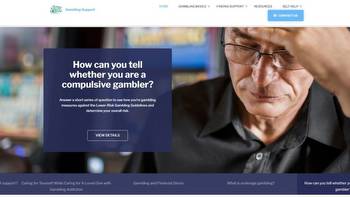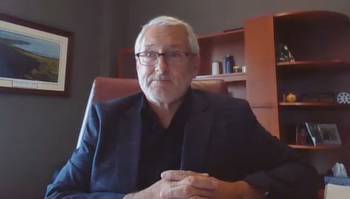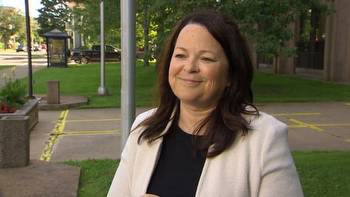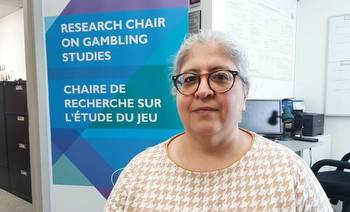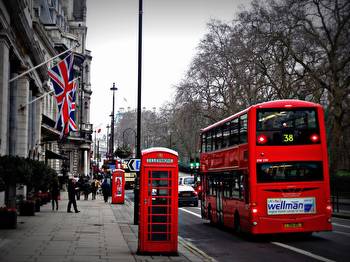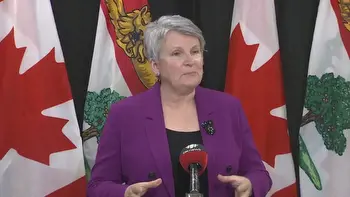Big jump in Islanders at risk from gambling, along with P.E.I.'s gambling revenues

The proportion of Islanders at risk from gambling tripled between 2005 and 2019, according to a prevalence study delivered to the P.E.I. government more than two years ago.
Government should learn whose losses are adding to provincial coffers, addictions counsellor says
The proportion of Islanders at risk from gambling tripled between 2005 and 2019, according to a prevalence study delivered to the P.E.I. government more than two years ago.
The study, which was only released to the public last month, concluded 11,137 Prince Edward Islanders were at some level of risk from gambling, or 8.6 per cent of the adult population.
A prior 2005 study had put the number at 2.8 per cent.
"It is difficult to determine how much of this increase may be due to differences in the way this information was collected, but the increase warrants attention and further investigation," the authors of the 2019 review concluded.
That study was conducted by researchers at UPEI working as part of a national program known as SPOR, the Strategy for Patient-Oriented Research, meant to inform public health decision-making.
The study also concluded Islanders between the ages of 18-34 were three times as likely to be at risk of harm from their gambling compared with those 55 or older, while those who gambled online were 3.6 times as likely to be at risk compared to those who gambled in person.
Mary-Ann Standing, one of the epidemiologists behind the research, said the harm could range from "harms to their financial situation or their household's financial situation, to their personal relationships, to their mental health.... There's lots of different aspects of someone's life that could be impacted by their gambling."
Green MLA Peter Bevan-Baker said his party was surprised to learn of the existence of the 2019 study by seeing it referenced in the province's new responsible gambling strategy.
Bevan-Baker said his biggest concern was in relation to the figures for younger Islanders, between the age of 18 and 34.
"That's also the population which uses online gambling which we know is far more problematic."
He said he hoped this would put to rest the government's plans, put on indefinite hold in 2021, to launch its own online casino through the Atlantic Lottery Corporation.
"One of the worst places that government should be relying on [for] profit-making is from online gambling, because we know how that is destructive to lives, the lives of Islanders," Bevan-Baker said.
While P.E.I.'s cabinet gave its blessing in late 2020 to a proposal from Atlantic Lotto to launch an online casino, the province eventually balked, facing opposition from MLAs from all parties in the legislature, including the governing PCs.
Record lottery revenues
Last month, finance minister Jill Burridge said the province has no current plans to go ahead with an online casino, something the other three Atlantic provinces have all now agreed to.
Even without an online casino, P.E.I. has recorded back-to-back years of record lottery revenues.
For the fiscal year that ended March 31, 2023, the Atlantic Lotteries Corporation returned $29.3 million in profits to the province, a 25 per cent increase over the previous year, and almost double the amount the province received in 2020-21, when the pandemic led to a dip in lottery revenues.
But overall profits have more than just bounced back from a COVID slide. The amount the province received last year is 60 per cent higher compared to the five-year average leading into the pandemic.
The biggest increase has been in profits from lottery ticket sales, which more than doubled over a three-year period. In 2021, changes in federal law came into effect allowing betting on single sporting events.
In a statement, the P.E.I. Department of Finance also cited the lifting of COVID restrictions on operations at its two Red Shore casinos, although casino profits for 2022-23 were three times higher than before the pandemic.
The province also said population growth is fuelling an increase in lottery revenues.
"I think it's always important when revenues go up to check who's contributing the most," said Elizabeth Stephen, a Halifax-based counsellor who specializes in gambling addiction.
"Is it a very small percentage of people, or is it widespread?"
She said she's not surprised to find people are gambling more given the current economic climate.
"It's a hope, it's a chance, it's a risk to make some money in ways that most people really don't feel they can anywhere else."
'The numbers only tell part of the story'
P.E.I.'s 2019 gambling incidence study identified a "crucial next step" for the province in understanding the risk to residents from gambling "would be to engage with Islanders who have lived experience with at-risk and problem gambling to help gain a deeper understanding of these study results."
"The numbers only tell part of the story," Standing said.
"It's really important to understand the lived experience of people who were, you know, having issues with their gambling and their families and the communities."
The 2019 report also urged the province to further explore the factors which led to the increase in prevalence compared with the 2005 study.
Last month, the P.E.I. Department of Health and Wellness issued a request for proposals for new research to "analyze changes in gambling behaviour and consumption patterns during and post-pandemic," and to "evaluate the economic and social consequences of COVID-19 on the gambling industry."
That research would also include an update of the survey numbers gathered in 2019.
Nora McCarthy-Joyce, one of three people who work with the province's gambling support unit, said it's important to understand the changes in gambling habits from the pandemic, particularly as it led to people spending more time online.
"The enormous changes that we've really seen… the way we've kind of taken online work, and it's part of our every day now, where it wasn't necessarily in the past — I think that requires investigation."
Kerry Campbell is the provincial affairs reporter for CBC P.E.I., covering politics and the provincial legislature. kerry.campbell@cbc.ca












